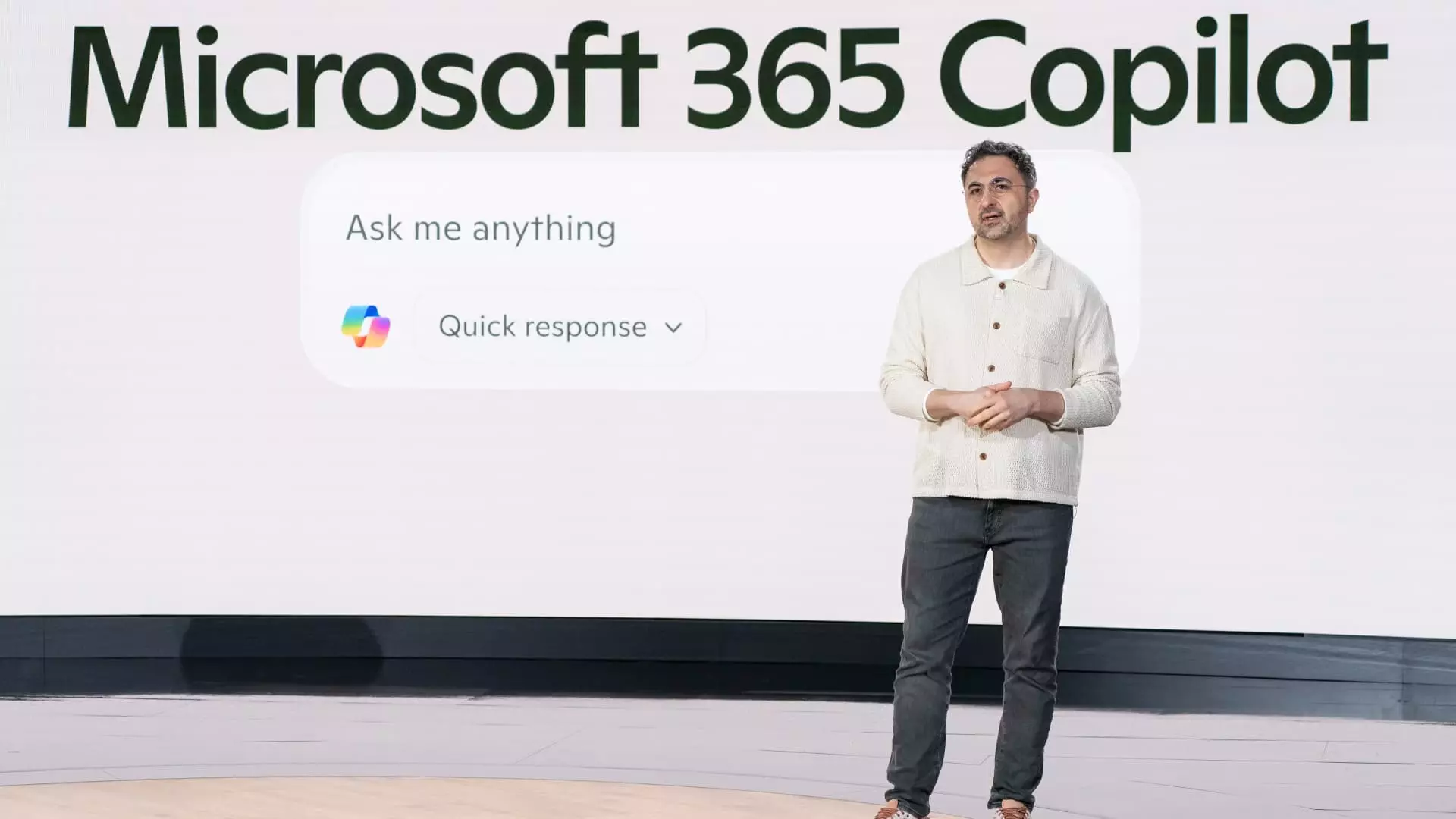In the rapidly evolving landscape of artificial intelligence (AI), Microsoft has taken a distinct approach that sets it apart from its competitors. Rather than seeking to remain at the forefront of AI development, the company has opted for a strategy rooted in strategic patience. Mustafa Suleyman, Microsoft’s CEO of AI, recently shed light on this unconventional philosophy, emphasizing the advantages of allowing others to forge ahead in the race for cutting-edge AI. This approach could very well revolutionize the way tech giants perceive the development and deployment of AI technologies.
Suleyman’s claim is bold: waiting three to six months to develop AI models can yield significant benefits, including cost efficiency and heightened focus on specific use cases. Known for his prior success at DeepMind, Suleyman is no stranger to the intricacies of AI. By refusing to jump on the bandwagon of the latest trends and technologies, Microsoft positions itself to provide targeted solutions that address real-world problems, at a fraction of the cost of those rushing into the fray. This mindset underscores a deeper understanding of the market’s needs and rejects the relentless pursuit of being first at any cost.
The Value of Timing in AI
Timing is everything, and Suleyman’s insights unveil a crucial truth about the tech industry: deploying advanced AI too soon can backfire. By allowing the so-called “frontier” players to experiment and iterate, Microsoft can learn from their successes and failures before developing its own models. This careful observance forms the basis of what Suleyman terms “off-frontier” strategy. Instead of absorbing the high costs associated with being the front-runner, Microsoft’s decision to play the waiting game enables them to deliver sophisticated AI solutions that are already tried and tested in the marketplace.
Moreover, leveraging superior technology developed by others gives Microsoft the option to allocate resources more effectively. Instead of relying solely on its internal capabilities, Microsoft has formed strategic partnerships with key players in the industry, notably OpenAI. This collaboration has evolved to become mutually beneficial, but it’s crucial to consider the implications of such ties; as alliances morph and adapt, Microsoft must be prepared to navigate any potential pitfalls and power struggles.
Building a Distinctive AI Ecosystem
While collaborations are paramount, Suleyman emphasizes that Microsoft is simultaneously nurturing its internal AI capabilities. This dual-focus strategy allows the company to remain flexible, providing high-quality AI products while cultivating homegrown innovation. The introduction of memory features in their Copilot tool showcases how Microsoft is not just a follower in the space but a formidable innovator in its own right. This feature contributes to personalizing user experiences—a characteristic that could become increasingly essential as AI applications proliferate.
Understandably, the AI landscape is rife with competition, and Microsoft’s relationship with OpenAI has undergone a series of evolutions. Investment of $13.75 billion is no small commitment, yet Suleyman acknowledges that long-term success depends on developing a self-sufficient AI infrastructure within Microsoft. While the partnership continues to be lucrative, stumbles such as OpenAI’s dealings with other cloud providers, like Oracle, could threaten the foundational strength of their alliance. Balancing these relationships while pursuing an independent agenda will be critical as Microsoft navigates the future of AI.
A Roadmap for the Future
Looking forward, Microsoft is poised on the brink of something significant. Suleyman’s assertion that the company isn’t fixated on crafting the “absolute frontier” model reflects a maturing perspective—one that recognizes the pitfalls of unbridled ambition. In an era where AI promises to permeate every facet of human existence, achieving a balance between innovation and pragmatism could become Microsoft’s hallmark in the tech narrative.
As they strategically refine their collective approach, the long-term goal of crafting reliable and adaptable AI systems seems more attainable. With leaders like Suleyman at the helm, Microsoft is not just playing a game of catch-up; they are recalibrating the entire playing field, steering the narrative towards sustainable development and thoughtful innovation in AI. With this renewed focus, the firm has the potential to not only keep pace but perhaps even set the standards for others to follow.


Leave a Reply